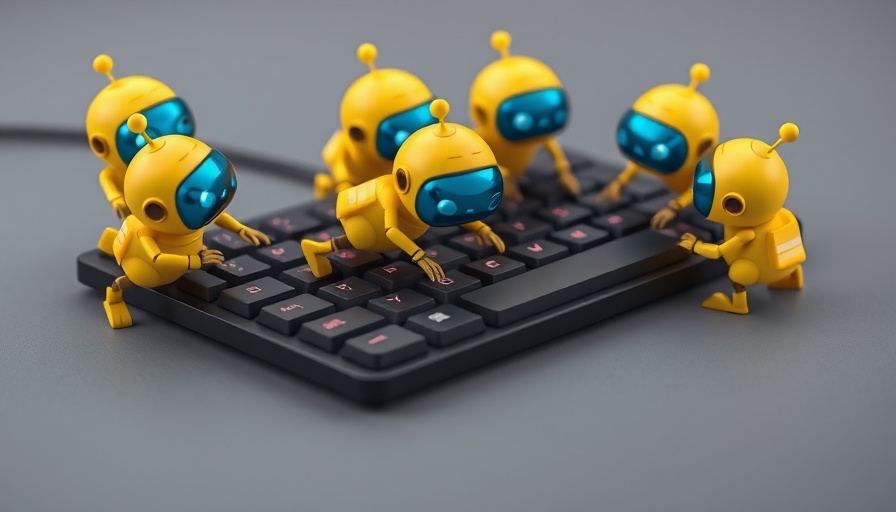
The Dawn of AI Agents: A New Era in Automation
OpenAI is making significant strides to usher AI agents into the workforce, promising a transformative impact on how businesses operate. The unveiling of the new Responses API marks a pivotal step in the development of these autonomous systems capable of executing multi-step tasks independently. By leveraging advanced AI models, businesses can now create custom AI agents optimized for specific functions, which could revolutionize productivity across various sectors.
Understanding AI Agents and Their Implications
AI agents are designed to act on behalf of users, performing tasks that require a level of autonomy traditionally dependent on human input. Unlike previous iterations of AI systems that primarily require direct user commands, these new agents can browse the internet for real-time information, scan through company files instantaneously, and carry out complex workflows. This capability is not just theoretical; it brings the possibility of AI agents becoming an integrated part of the workforce by 2025, as noted by OpenAI CEO Sam Altman.
The Technology Behind the Transformation
The Responses API allows developers access to powerful tools like GPT-4o search and GPT-4o mini search, which significantly enhance the accuracy and efficiency of AI-driven responses. Early trials indicate that these new models can answer questions with a remarkable 90% accuracy. This leap in factual correctness is crucial for businesses relying on the precision of AI responses to make informed decisions.
Challenges and Limitations: A Cautious Optimism
Despite these advancements, OpenAI stresses that their Computer-Using Agent (CUA) model still has a way to go in terms of reliability. Issues with navigation and the potential for errors underscore the fact that these technologies are still in their infancy. AI confabulations, instances where the AI generates plausible but incorrect information, remain a notable challenge. This continues to be a barrier as developers seek to build applications that clients can trust.
OpenAI’s Vision: More Than Just Hype
The tech industry has experienced considerable hype surrounding AI agents, often promising more than current technologies can deliver. The recent case of the Butterfly Effect and its Manus AI agent platform showcased this disconnect. Consumers were quick to identify gaps between promotional claims and the platform’s actual utility. In response, OpenAI acknowledges the importance of tangible results over flashy demonstrations, aiming to mitigate the risks associated with over-promising.
Future Trends: What’s Next for AI Agents?
As OpenAI continues developing its new technologies, it’s worth considering what the future may hold for AI agents in practical applications. The integration of AI agents into enterprise ecosystems will likely accelerate as developers utilize the Agents SDK for internal implementations. This open-source toolkit provides additional resources for integrating AI capabilities while ensuring compliance and monitoring, addressing some of the key concerns businesses have had about AI technologies.
Conclusions: Preparing for the AI Agent Revolution
Those involved in tech are encouraged to watch these developments closely, not only for their potential business applications but also for the broader implications they pose for society. AI agents represent both opportunities and challenges that could redefine workforce dynamics. Understanding these developments will be crucial for anyone interested in navigating the evolving landscape of technology.
Discover more about how to integrate AI agents into your workplace or stay informed about the latest advancements by engaging with AI communities and utilizing these groundbreaking tools from OpenAI.
 Add Row
Add Row  Add
Add 




 Add Row
Add Row  Add
Add 

Write A Comment